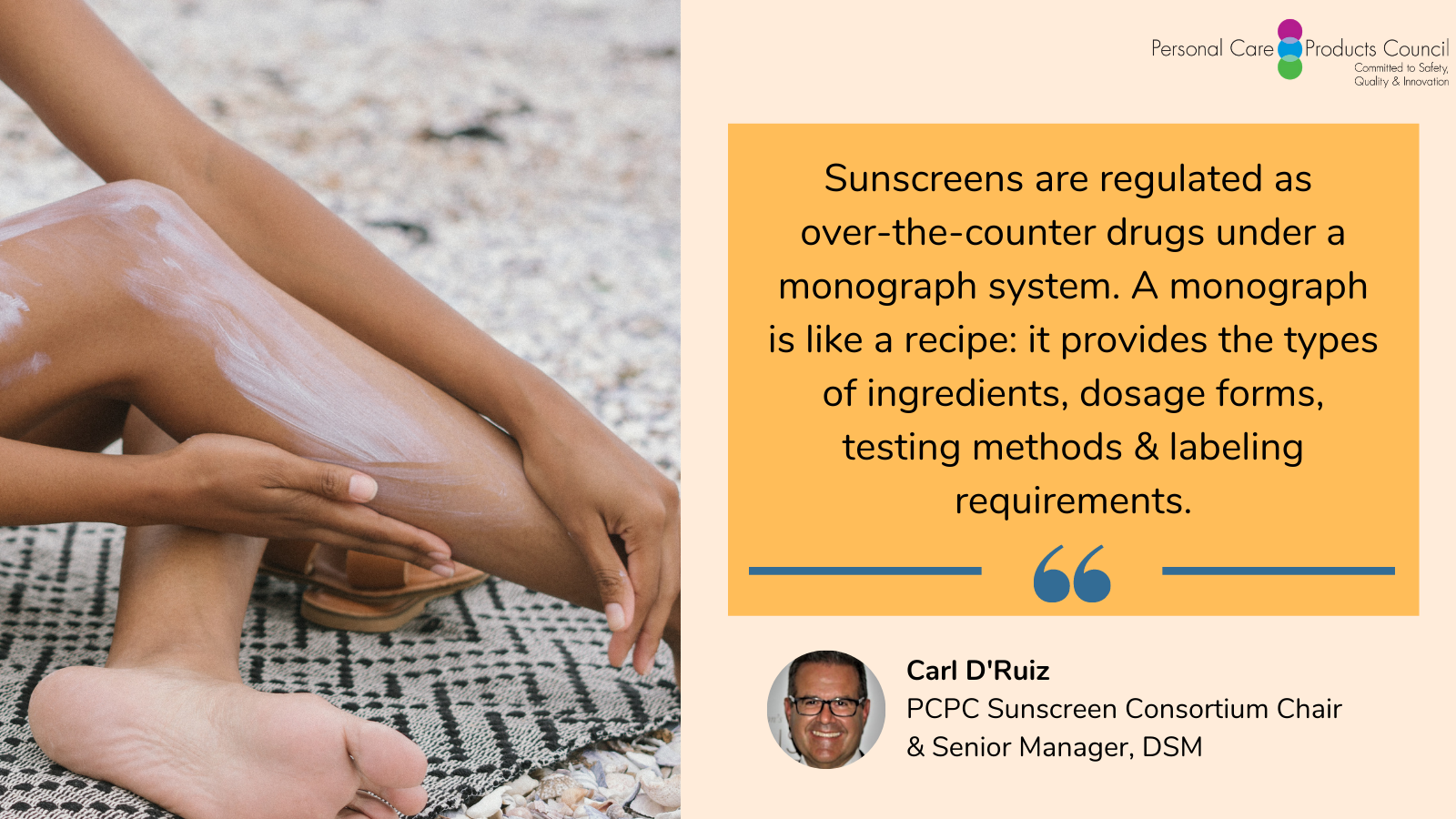Sun Safety and Wellness After COVID
By Carl D’Ruiz
Senior Manager, NA Personal Care Regulatory Affairs
DSM Nutritional Products LLC
Summer unofficially kicks off Memorial Day weekend, and many people will soon be spending more time outdoors, in the water and traveling to sunny destinations. As more people receive COVID-19 vaccinations and restrictions are lifted, it feels more exciting than ever to be outside enjoying the sun and summer season. But, it’s also critically important to protect your skin from over-exposure to the sun. And health experts worldwide agree that sun protection helps prevent sunburns, premature skin aging and skin cancer.
Skin Cancer Facts
Over-exposure to ultraviolet (UV) light – invisible sun rays that can damage skin cells – causes most skin cancers. In the Unites States alone, nearly 5 million people are treated for skin cancer each year. Although those with lighter skin are at higher risk, anyone can get skin cancer. People with darker skin may often be diagnosed with skin cancer at a later stage, making it more difficult to treat.
While skin cancer is one of the most common cancers, it is also one of the most preventable. According to the World Health Organization (WHO), four out of five cases can be prevented by following safe-sun practices including limiting your time in the sun, seeking shade, wearing protective clothing and using sunscreens regularly.
Sunscreens are a key factor in preventing and reducing the risk of skin cancer and UV-induced skin damage. Nonprofit health organizations, including the American Cancer Society, American Academy of Dermatology (AAD), Mayo Clinic and Skin Cancer Foundation, recommend using sweat- and water-resistant broad-spectrum (protects against UVA and UVB rays) sunscreens with a sun protection factor (SPF) of 30 or higher as part of a safe-sun regimen. The Centers for Disease Control and Prevention (CDC) notes the importance of daily sunscreen use, including on cloudy and overcast days, to help prevent most skin cancers.
Sunscreen History and Regulation
What many people don’t know is that sunscreens are regulated as over-the-counter (OTC) drugs under a monograph system by the U.S. Food and Drug Administration (FDA). A monograph gives instructions for how to manufacture a product and establishes various requirements for it to be sold and used in the U.S. You can think of it like a recipe in that it provides the types of ingredients, dosage forms, testing methods, labeling requirements and so forth for a given product category, such as sunscreens or antiperspirants. FDA, the regulatory body in the U.S. that comes up with the recipe for all OTC products, requires all sunscreens meet strict product safety, efficacy and labeling standards before they can be marketed or sold in the U.S.

The sunscreen monograph has undergone many different regulatory updates throughout the decades. For example, in early 2019, FDA published a proposed rule for updated sunscreen regulations, called the Sunscreen Tentative Final Monograph (TFM). In March 2020, Congress passed the CARES (Coronavirus Aid, Relief, and Economic Security) Act, a relief legislation in response to the COVID crisis, which also contained some provisions related to sunscreens and the OTC drug system, generally OTC Reform. These provisions referred to earlier FDA sunscreen regulations and took precedence over the proposed 2019 TFM. As part of additional language in the CARES Act, FDA is expected to propose new sunscreen regulations by this fall.
Practically speaking, this is all a bit confusing, and we are waiting to get more information on the implementation of OTC Reform. Here’s what you need to remember in the meantime:
FDA emphasizes that Americans should continue to use sunscreens with other sun-protective measures. The dangers of sun exposure are clear and universally recognized by public health professionals and dermatologists worldwide.
As an industry, we remain deeply committed to product safety and providing consumers with safe and effective products that meet their diverse needs. The more products consumers can choose from, the more likely they are to use the ones they choose. Cosmetics and personal care products companies are proud of the innovative sunscreen products they develop to help protect consumers from the harmful effects of the sun’s UV rays.
This Memorial Day weekend, remember to apply your sunscreen – 30 minutes before going outside and then every two hours, or immediately after swimming or sweating – and enjoy being outside after 14 months of COVID.
Carl D’Ruiz serves as chair of PCPC’s Sunscreen Consortium, which leads and aligns the U.S. industry’s strategy and approaches for substantiating the safety and efficacy of sunscreen UV filters, and advocates the public health benefits associated with sunscreens.
